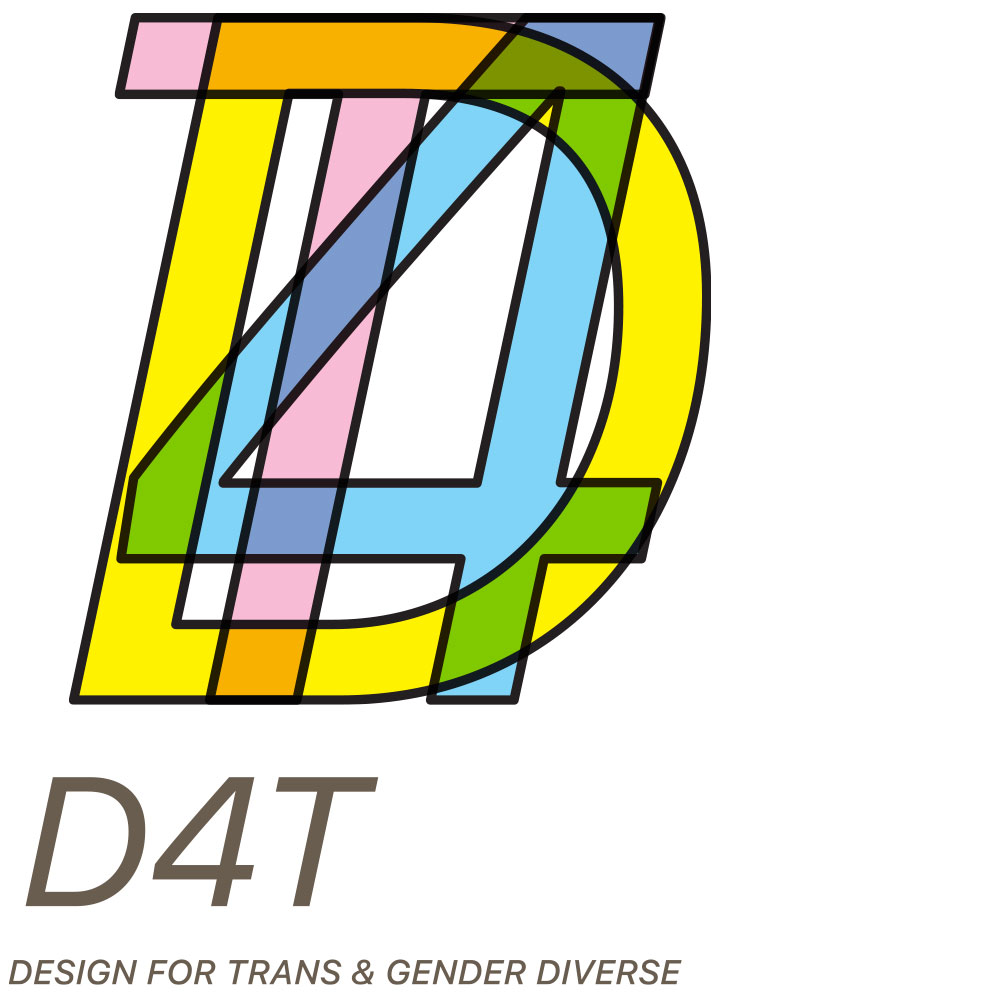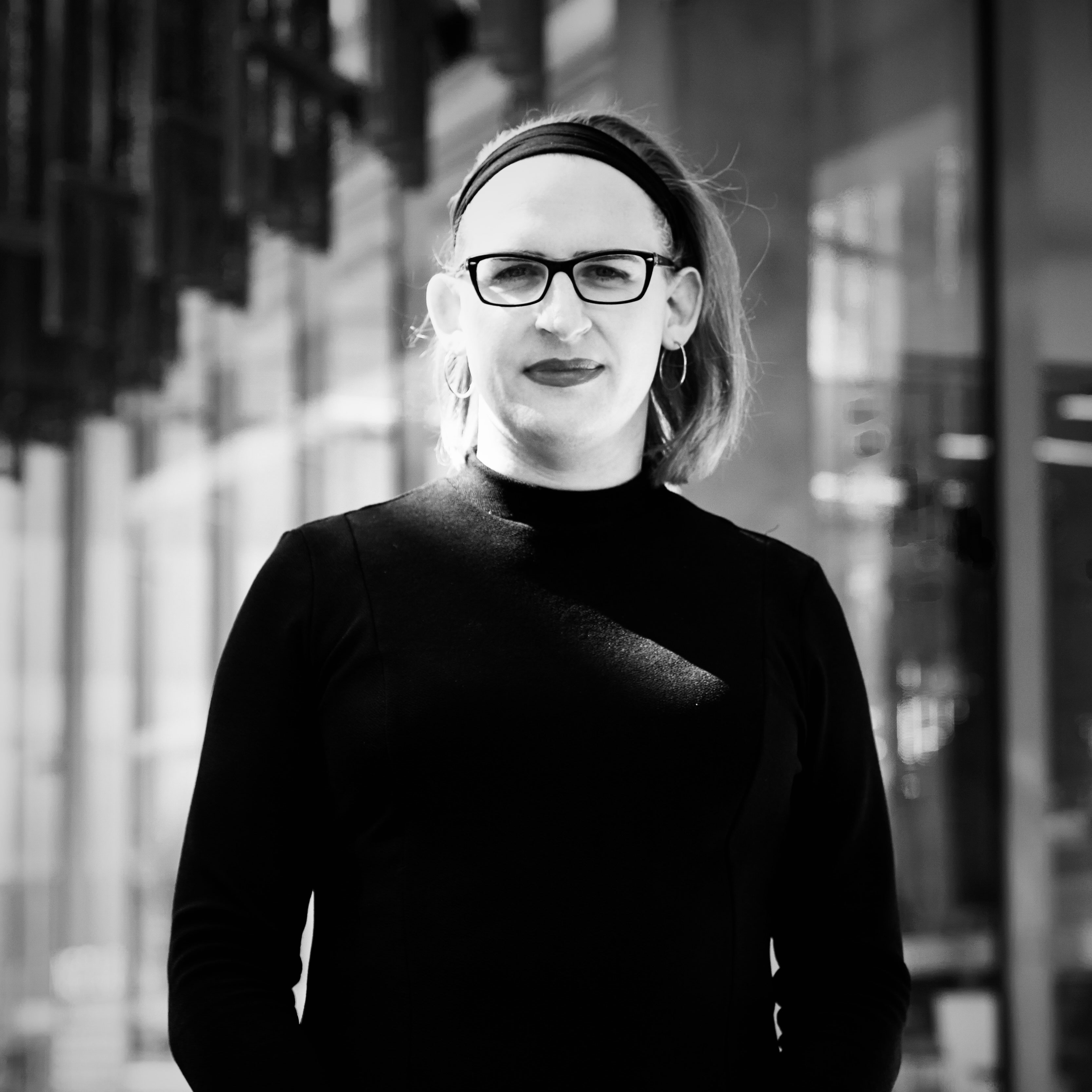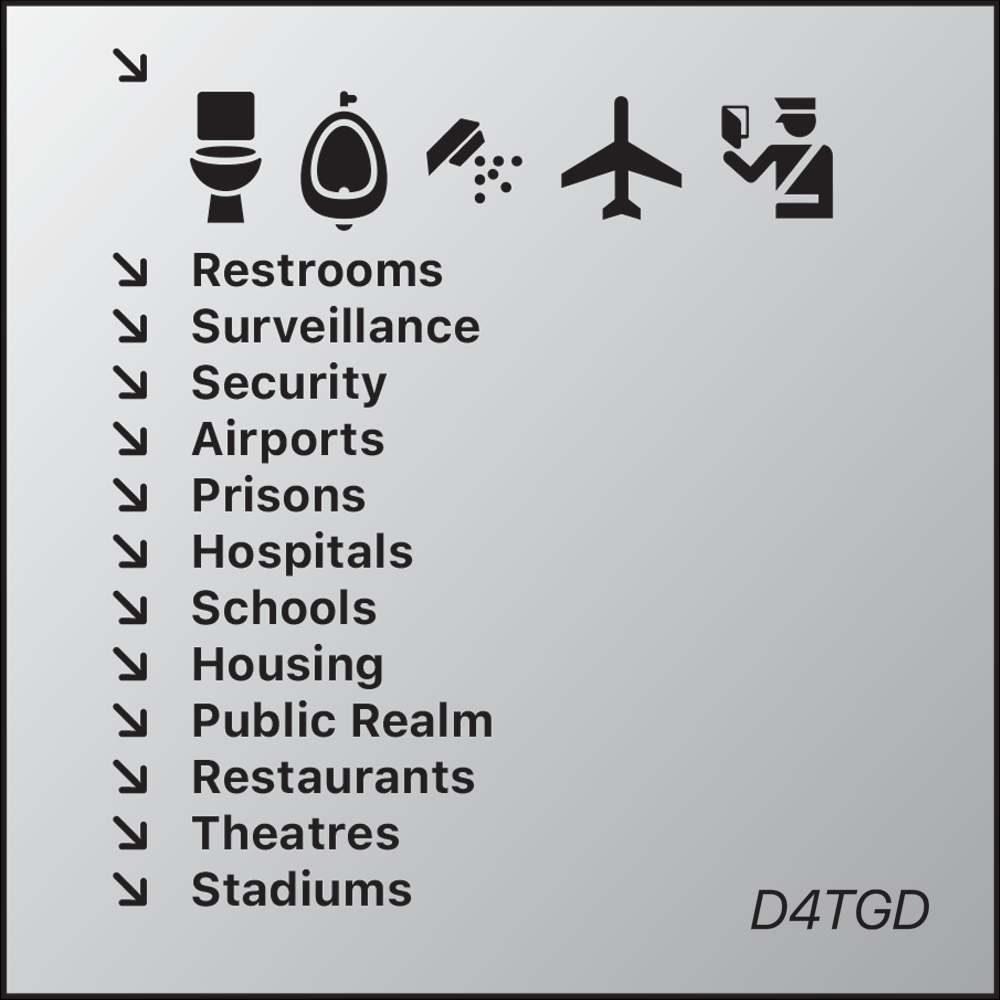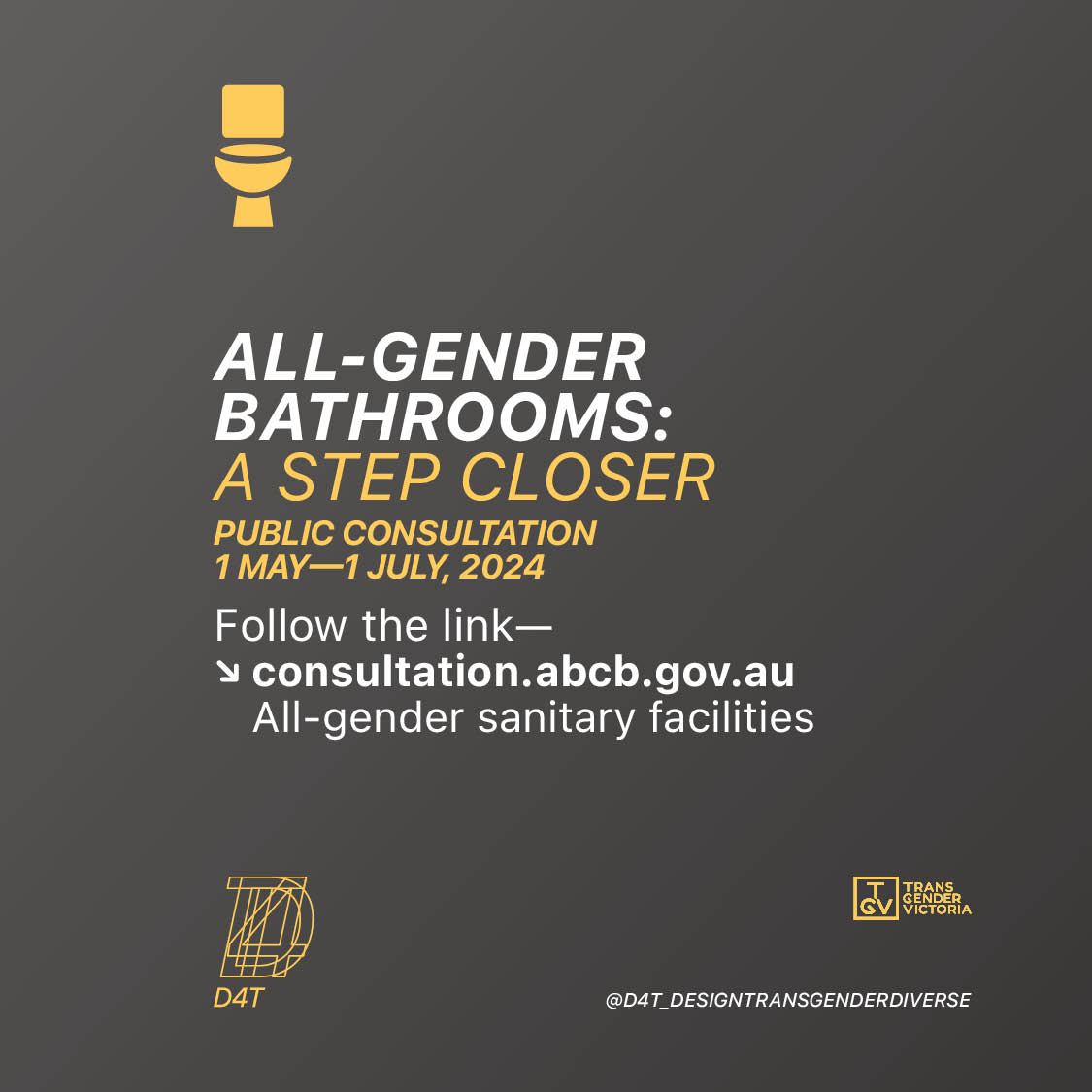
Consulting support driving innovation in gendered spatial design through research-led approaches, empowering queer and trans communities to actively shape public and civic spaces according to their unique needs and aspirations.
Through partnerships with spatial designers and planners, we can deepen our collective understanding of gendered spaces and better serve trans and gender-diverse cohorts.
Architecture sits at a critical nexus for advocating, mediating, and envisioning gendered spaces of future and retrofitted environments. Collaborative practices that prioritise trans voices with design studios, building owners, governance bodies, and organisations facilitate the creation of safer, discrimination-free spaces.

Dr Simona Castricum
PhD [Arch], BArch [Hons], Associate RAIA
Experience—
With three decades of architectural studio and academic practice, alongside transgender lived experience and relationships with LGBTIQA+ community organisations, including Transgender Victoria, Simona aims to build relationships of trust to enhance allyship between community and practice, prioritising representation and innovation—actions that will directly affect trans people’s lives. Drawing from her research at the University of Melbourne, Simona’s advocacy and collaboration is dedicated to designing with dignity, autonomy, representation, access, and opportunity as guiding principles.
Simona has consulted on trans and gender diverse spatial design with the Australian Building Codes Board, University of Melbourne, Music Victoria, and the City of Melbourne. She has also worked alongside community reference groups for the Victorian Pride Centre, and design teams for the Arts Centre Melbourne Redevelopment, and the NGV Contemporary Design Competition.
Methodology—
D4T operates within a design justice framework spanning community, industry, and institutional levels in architecture, building, and planning. This focuses on advancing transgender and gender diverse rights. Trans design thinking and knowledge play a pivotal role in the reimagining of gendered spaces in our built environment. Designers should regard the rights, dignity, and safety of all trans and gender diverse individuals as non-negotiable.
Services—
Offering briefing and design review, workshops, community engagement, contextual research, policy development, and workplace training and advisory services, the focus is on advocating for queer and trans cohorts. These services are tailored for design studios, building owners and operators, councils, public departments, and institutions.

More than bathrooms, there is an urgent community need for innovation in gendered spatial design across public and private education, healthcare, justice, residential, infrastructure, recreation, and entertainment sectors that reflect the lived experience of gender as formally recognised in Australian law.
The lived experience of transgender and gender diverse individuals in all facets of civic life underscores the importance of ensuring alignment between design, briefing, and building codes with recent legislative advancements permitting self-identification of sex and gender across Australian states and territories (with further changes proposed for New South Wales and Western Australia).
As momentum grows towards achieving consistent nationwide recognition of transgender and gender diverse individuals, the design and construction industry increasingly seeks to enhance its competencies in designing gender-inclusive spaces. Regulations in Australia for gendered space in the National Construction Code, such as bathroom and sanitary provisions, are under ongoing review through The Australian Building Codes Board until July 1, 2024.

Failing to address legislative discrepancies risks designing harm or discrimination against transgender and gender-diverse individuals into our built environment and potentially leading to legal consequences for building owners in the public and private sectors.
Community Networks—
D4T fosters collaborative working relationships that build agency and collective power and value lived experiences through community networks. Here are some trans and queer community organisations and advocacy groups:
- Transgender Victoria: [Melb/Naarm]
Transgender Victoria is the leading body for trans and gender diverse advocacy, training, and resource development in Victoria.
-
Beyond Bricks & Bars: [Melb/Naarm]
Beyond Bricks & Bars is a peer-led, community project that provides direct support to trans and gender diverse people in prison, at risk of incarceration and those returning to their communities from prison.
-
Trans Justice Project: [Bris/Meanjin]
Trans Justice Project advocates for freedom, justice, and equality for all trans and gender diverse people.
- Queerspace: [Melb/Naarm]
Queerspace is an LGBTIQ+ health and well-being support service that focuses on relationships, families, parenting, and young people and offers co-located services across the northwest metropolitan region of Victoria.
- Affirmation Station: [Melb/Naarm]
Trans-led community hub supporting trans and gender-diverse people, exploring their identity and finding support.
- Thorne Harbour Health: [Melb/Naarm]
Thorne Harbour Health is a Victorian-based health service aimed at LGBTIQ+ communities and people living with HIV.
- ACON: [Syd/Eora]
ACON is New South Wales' leading HIV and LGBTQ+ health organisation.
- Victorian Pride Lobby: [Melb/Naarm]
The Victorian Pride Lobby promotes equality, social justice, and human rights for members of the LGBTIQ community.
- Equality Australia: [Syd/Eora]
Equality Australia leverages legal, policy, and communication expertise, supported by collective community strength, to advocate for equality among LGBTIQ+ individuals.

